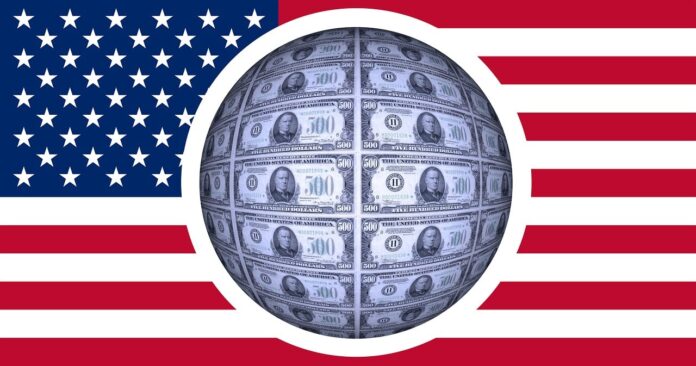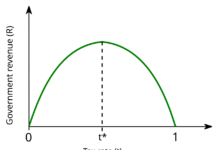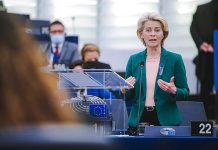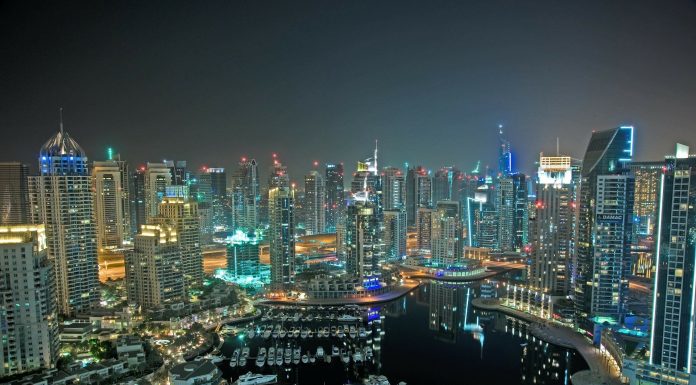The trade war unleashed by US President Donald Trump has set a lot of things in motion. First and foremost, it seems to have spurred the European Union to be more ambitious when it comes to its own trade policy. Immediately after Trump’s announcement in early April, the EU re-started trade talks with the United Arab Emirates, something that Brussels officials had previously blocked because they felt it would be better to conclude a trade agreement with the Gulf Cooperation Council, a regional trade association modelled on the EU.
The European Union now also seems willing to make concessions in its trade relations with India. The European protectionist climate tariff CBAM, which stands for “Carbon Border Adjustment Mechanism”, is a thorn in the side of the Indians. The EU wants to impose this customs tariff on trading partners that do not or do not sufficiently comply with European climate policy. Indian Foreign Minister Subrahmanyam Jaishankar recently said on this subject: ‘The idea that one part of the world will set standards for everybody else is something which we are against.’
About half of the chapters in the proposed trade agreement between the EU and India have already been negotiated. ‘Europe is becoming far more realistic’, Jaishankar commented, emphasising that ‘We have very deep reservations on CBAM, and we’ve been quite open about it.’ In other words, EU climate policies are undermining European efforts to conclude trade agreements to compensate for Trump’s new protectionism.
Translated for You: #EU shall move on #CBAM and rules of origin.
Important deal#India #EU #FTA https://t.co/XzjDryxwmn— Andrea Čepová (@AndreaCepova) June 10, 2025
TACO
Nevertheless, Trump seems willing to make major concessions, to such an extent that opponents are now using the acronym ‘TACO,’ which stands for ‘Trump Always Chickens Out.’ He has already made a deal with the United Kingdom and China, apart from the 90 days pause he also introduced. Rightly or wrongly, stock markets seem reassured that everything will turn out fine in the end.
However, there is still no agreement with the European Union. Since April, most EU exports to the US have been subject to 10% import duties. The additional US import duties of 25% on steel and aluminium, which were introduced in March, also remain in force. The EU has so far managed to avoid the higher tariffs for China.
The EU was ready to retaliate with far-reaching countermeasures in a wide range of areas, from whisky to motorcycles. It also prepared a second package. However, both have been suspended because negotiations between the EU and the US are still ongoing.
BREAKING: Someone made a compilation of all the times Donald Trump said he’d make a decision within two weeks. All the evidence that Trump always chickens out is right here. This is amazing. pic.twitter.com/rgk9gpUczq
— Democratic Wins Media (@DemocraticWins) June 20, 2025
European concessions
Somewhat under the radar, the EU has already made a major concession to Trump. At the end of last month, the European Commission classified imports from the United States as ‘low risk’ under the new anti-deforestation directive. This came after considerable pressure from the US Trade Representative (USTR), which considers this EU regulation to be a ‘non-tariff barrier’, or disguised protectionism.
The EU legislation in question, which imposes all kinds of bureaucratic obligations on trading partners to export products such as cocoa, coffee, soy, palm oil and beef to the EU, has not only led to a row with the US. South-East Asian palm oil producers are also concerned. They consider it unfair that their imports are classified as “standard risk”, as opposed to the US classification of “low risk”, especially given that the problem of deforestation in countries such as Malaysia has improved significantly. This is partly due to the imposition of its own MSPO standard, but despite this, the EU continues to refuse to recognise the Malaysian standard as equivalent, unlike the UK, for example. The fact that the latest version of that standard is even stricter than the European one does not change the situation.
With regard to relations with China, too, the EU now seems to be making concessions to Trump by shifting significantly towards the American position on the issue. ‘When we focus our attention on tariffs between partners, it diverts our energy from the real challenge — one that threatens us all,” von der Leyen stressed at the recent G7 summit, in the presence of Trump. “On this point, Donald is right — there is a serious problem”, she thereby added, encouraging the U.S. president to join forces with his allies.
‘Donald is right’ and China is the problem, EU chief says https://t.co/Wy9nzfLSmr
— Andrew J Phelan (@ajphelo) June 18, 2025
The extent to which this transatlantic front will be able to force China into major policy changes remains to be seen. Thanks to its control over rare earth metals, China has a lot of bargaining power. But of course, all trading partners have a lot to lose.
The US can hit just about everyone hard, either through customs tariffs or its own strong defence. The latter can be achieved both by increasing pressure on China and by reducing defence spending to allies. This helped to ensure that the restrictions on rare earth metals for American car manufacturers announced by China in April were quickly lifted for the top three car manufacturers in the US.
Also measures taken by trading partners seem to however have affected Trump. As mentioned, he has already withdrawn a number of measures, and it appears that the proposed US secondary sanctions against Russia, which would hit China hard, will ultimately also indirectly affect the US. This in turn increases the likelihood that things will not go too far here either.
Furthermore, the EU itself could also cause damage if it wanted to. The Dutch company ASML is reportedly capable of remotely disabling the world’s most advanced chip manufacturing machines, for example in the event that China invades Taiwan. This would be as unhelpful to Europe as US customs tariffs are to the US or Chinese restrictions on rare earth metals are to China, but it shows that it is simply wrong to think that there are winners and losers in trade. There are only losers in a trade conflict.
Perhaps the predictions about the end of globalisation were a little premature. We are simply too dependent on each other.
Has von der Leyen just hoisted the white flag in the trade talks with the US with her U-turn on China?https://t.co/5k79LAV2dY
— Wolfgang Munchau (@EuroBriefing) June 18, 2025
"European Union leaders will use a summit with China next month to seek better access to Chinese rare earths and critical minerals" https://t.co/BoKIY1CTmM
— Pieter Cleppe (@pietercleppe) June 20, 2025













